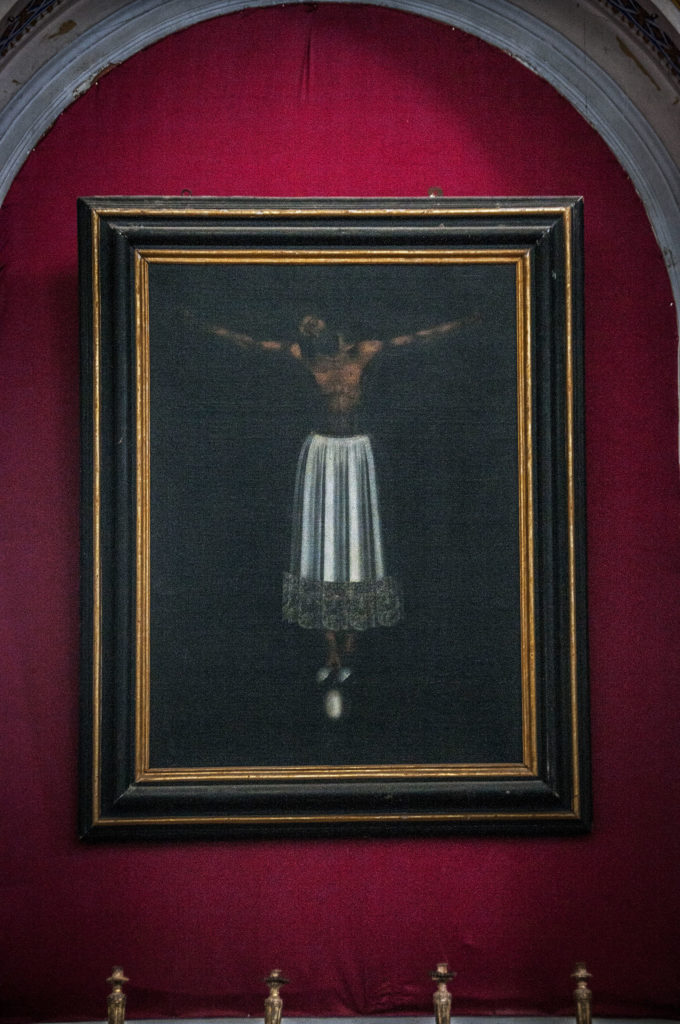A church decorated with infinite materials that make it wonderful and precious.
If we could touch the walls and decorations of the church, we would realise how much the temperature of one material can vary compared to another: the glass windows are very cold in winter, but much warmer in summer when heated by the sun; the blue, plaster decorations are much warmer than the marble columns of the aedicula where the statue of the saint is kept; and the saint, made of wood, is warmer than all those materials.
The church of San Giovanni Evangelista (St. John the Evangelist) features a splendid decoration with blue and gold stuccoes from a renovation in the mid-19th century.
The artist is one Giuseppe Sesta, as can be read from an inscription at the entrance which also bears the date 1861.
The blue of the decoration is like a ribbon that runs around and ties together the church walls, lit up from time to time by the golden stuccoes.
